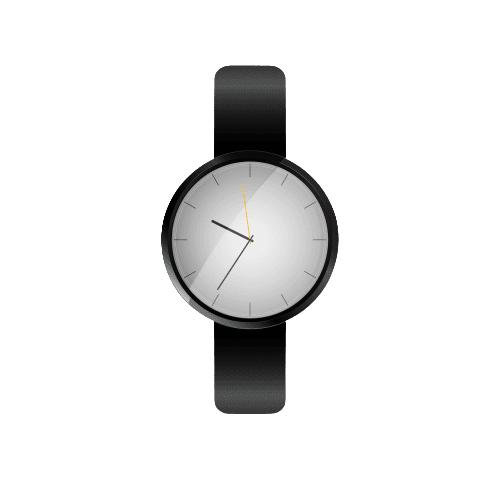Body
To Eat or Not to Eat: Debunking the Six-Meal Myth for Weight Loss

Team NxtClue
Content
|
4 mins
|
Aug 26, 2024

0:00/1:34
Don't have enough time to read?
Listen

To Eat or Not To Eat: Is Six Meals a Day the Magic Number?
I’m sure you’ve heard a lot of conflicting advice about how many meals you should eat daily to lose weight or maintain your waistline. Some experts (and your mother) recommend eating upwards of six meals a day, while others suggest limiting it to two or three meals. And then, there's always that one person who advocates for intermittent fasting (I love food too much to do that to myself).
In the nutritional world, common sense once dictated that the more often you eat, the more likely you are to burn off calories and control hunger pangs. This led to the popularity of eating six or more 'mini-meals' each day, often recommended as a more ‘waistline-friendly’ approach than consuming three larger meals daily. However, with the evolution of science, the answer to this question is no longer straightforward.
The theory fluctuates, and newer research shows that eating many meals a day doesn’t significantly increase your overall metabolic rate. Digesting a meal does raise your metabolism slightly, a phenomenon known as the Thermic Effect of Food. However, the energy your body uses to digest food depends on the total amount consumed. Eating three 800-calorie meals will cause the same thermic effect as eating six 400-calorie meals. Simply put, eating fewer or multiple meals does not help you burn more calories or lose weight.
If you want to control your caloric intake, eating fewer than three meals a day might be effective. One study found that individuals who skipped breakfast consumed 400 fewer calories throughout the day. Contrary to popular belief, skipping breakfast doesn't necessarily lead to overeating later; while your intake might increase slightly, it’s not nearly as much as the amount skipped. It would seem that eating fewer meals could be the healthier option (Score one for intermittent fasting?).
Download
Related Blogs

11 min
Body
Healthy Drinks Explained

Team NxtClue
|
26/08/24

11 min
Body
The Real Risks of Soda

Team NxtClue
|
26/08/24

11 min
Body
FAD Diets: Myths and Truths

Team NxtClue
|
26/08/24

11 min
Body
Healthy Drinks: Myth vs. Reality

Team NxtClue
|
26/08/24

I May Not Be the Menu, But I Can Still Guide You – I Know Some Shortcuts!
With us
Decision is yours
Without us

Copyright © 2024 NxtClue | All Rights Reserved
0:00/1:34
Don't have enough time to read?

Listen

4 mins
Body
To Eat or Not to Eat: Debunking the Six-Meal Myth for Weight Loss

Team NxtClue
|
Aug 26, 2024
Download
To Eat or Not To Eat: Is Six Meals a Day the Magic Number?
I’m sure you’ve heard a lot of conflicting advice about how many meals you should eat daily to lose weight or maintain your waistline. Some experts (and your mother) recommend eating upwards of six meals a day, while others suggest limiting it to two or three meals. And then, there's always that one person who advocates for intermittent fasting (I love food too much to do that to myself).
In the nutritional world, common sense once dictated that the more often you eat, the more likely you are to burn off calories and control hunger pangs. This led to the popularity of eating six or more 'mini-meals' each day, often recommended as a more ‘waistline-friendly’ approach than consuming three larger meals daily. However, with the evolution of science, the answer to this question is no longer straightforward.
The theory fluctuates, and newer research shows that eating many meals a day doesn’t significantly increase your overall metabolic rate. Digesting a meal does raise your metabolism slightly, a phenomenon known as the Thermic Effect of Food. However, the energy your body uses to digest food depends on the total amount consumed. Eating three 800-calorie meals will cause the same thermic effect as eating six 400-calorie meals. Simply put, eating fewer or multiple meals does not help you burn more calories or lose weight.
If you want to control your caloric intake, eating fewer than three meals a day might be effective. One study found that individuals who skipped breakfast consumed 400 fewer calories throughout the day. Contrary to popular belief, skipping breakfast doesn't necessarily lead to overeating later; while your intake might increase slightly, it’s not nearly as much as the amount skipped. It would seem that eating fewer meals could be the healthier option (Score one for intermittent fasting?).
Copyright © 2024 NxtClue | All Rights Reserved

I May Not Be the Menu, But I Can Still Guide You – I Know Some Shortcuts!
With us
Decision is yours
Without us

Copyright © 2024 NxtClue | All Rights Reserved

I May Not Be the Menu, But I Can Still Guide You – I Know Some Shortcuts!
With us
Decision is yours
Without us

Related Blogs